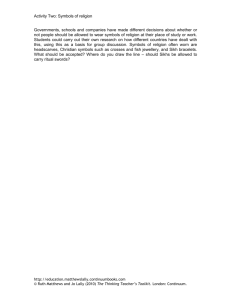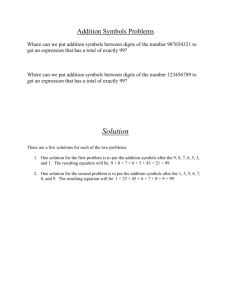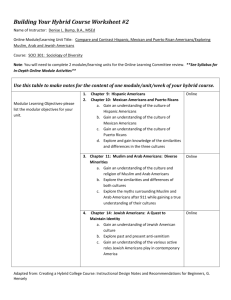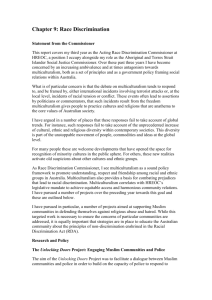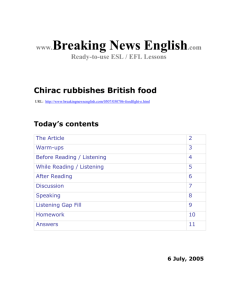A Motion To Oppose The French Government`s Decision To Ban
advertisement
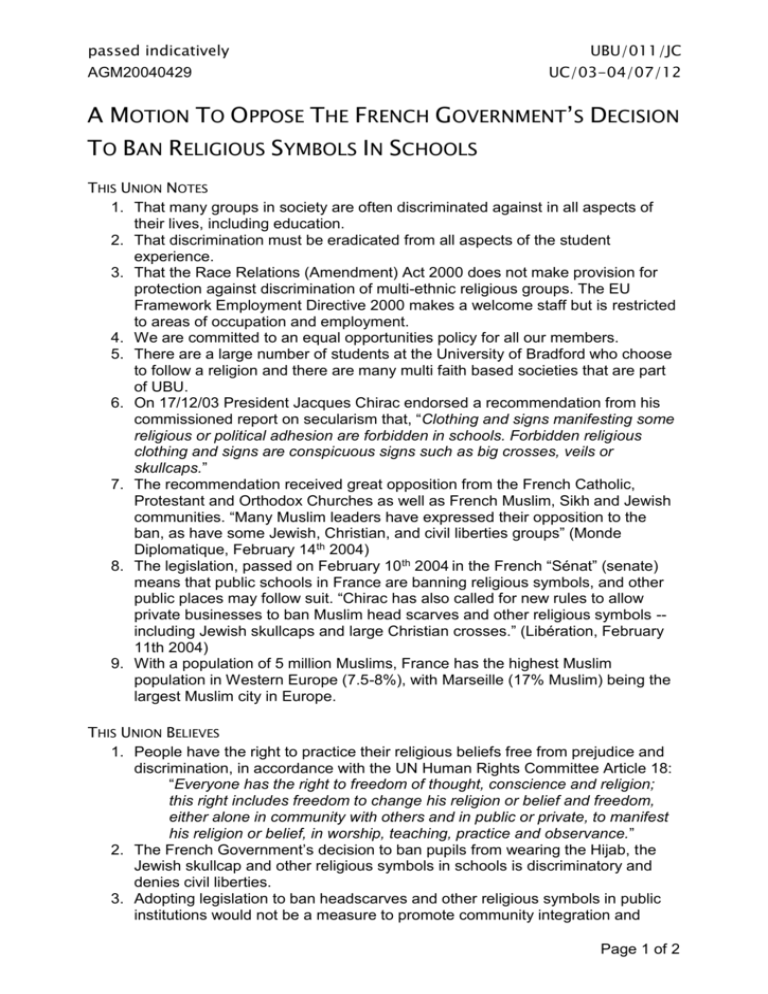
passed indicatively AGM20040429 UBU/011/JC UC/03-04/07/12 A MOTION TO OPPOSE THE FRENCH GOVERNMENT’S DECISION TO BAN RELIGIOUS SYMBOLS IN SCHOOLS THIS UNION NOTES 1. That many groups in society are often discriminated against in all aspects of their lives, including education. 2. That discrimination must be eradicated from all aspects of the student experience. 3. That the Race Relations (Amendment) Act 2000 does not make provision for protection against discrimination of multi-ethnic religious groups. The EU Framework Employment Directive 2000 makes a welcome staff but is restricted to areas of occupation and employment. 4. We are committed to an equal opportunities policy for all our members. 5. There are a large number of students at the University of Bradford who choose to follow a religion and there are many multi faith based societies that are part of UBU. 6. On 17/12/03 President Jacques Chirac endorsed a recommendation from his commissioned report on secularism that, “Clothing and signs manifesting some religious or political adhesion are forbidden in schools. Forbidden religious clothing and signs are conspicuous signs such as big crosses, veils or skullcaps.” 7. The recommendation received great opposition from the French Catholic, Protestant and Orthodox Churches as well as French Muslim, Sikh and Jewish communities. “Many Muslim leaders have expressed their opposition to the ban, as have some Jewish, Christian, and civil liberties groups” (Monde Diplomatique, February 14th 2004) 8. The legislation, passed on February 10th 2004 in the French “Sénat” (senate) means that public schools in France are banning religious symbols, and other public places may follow suit. “Chirac has also called for new rules to allow private businesses to ban Muslim head scarves and other religious symbols -including Jewish skullcaps and large Christian crosses.” (Libération, February 11th 2004) 9. With a population of 5 million Muslims, France has the highest Muslim population in Western Europe (7.5-8%), with Marseille (17% Muslim) being the largest Muslim city in Europe. THIS UNION BELIEVES 1. People have the right to practice their religious beliefs free from prejudice and discrimination, in accordance with the UN Human Rights Committee Article 18: “Everyone has the right to freedom of thought, conscience and religion; this right includes freedom to change his religion or belief and freedom, either alone in community with others and in public or private, to manifest his religion or belief, in worship, teaching, practice and observance.” 2. The French Government’s decision to ban pupils from wearing the Hijab, the Jewish skullcap and other religious symbols in schools is discriminatory and denies civil liberties. 3. Adopting legislation to ban headscarves and other religious symbols in public institutions would not be a measure to promote community integration and Page 1 of 2 passed indicatively UBU/011/JC AGM20040429 UC/03-04/07/12 combat religious militancy but instead would increase alienation and marginalisation of Muslims in France, potentially to be exploited by the French National Front. 4. The ban may set a precedent for other European countries. The Belgian Deputy Prime Minister Patrick Dawael has already called for a similar law in Belgium’s schools. 5. Legislating on what a person can or cannot wear is a breach of internationally recognised human rights to freedom of choice and self-expression. 6. All faith communities in Britain should be equally protected against discrimination in areas beyond employment. THIS UNION RESOLVES 1. To oppose the banning of the Hijab and Jewish skullcap along with other religious symbols from schools and universities. 2. To write to the French Embassy, asking them to outline our position to the French Government, and make any response publicly available to our members. 3. To write to the British Government, requesting that pressure be put on the French Government against this law. 4. To lobby the university to ensure that they are fully supportive and active within and beyond their religious diversity requirements. 5. To work on religious and community cohesions issues, with groups such as The Inter-Cultural Leadership School and to continue to challenge religious discrimination on campus. 6. To support inter-community dialogue with the aim to identify key areas of potential interaction across religions to discuss possibilities of cooperation and promote better mutual understanding. Reference here is made to the nature of work done by the Intercultural Leadership School in Bradford District as a model of such dialogue. proposer: Sofina Saddique seconder: Nazia Ali assentors: Fady Abusidu Rahul Bhardwaj Neil Crook Graham Martin Melvin Thomas Michelle Bailey Emily Bishop Andrew Duffy Dominic McGowan Andrew Thompson Nahddi Bensalem Matt Bishop Shona Fisher Saima Rifet Christopher Wells Andy Beverton Sarah Cartin Helen Jessop Hatty Slovak Owen Wibberley Page 2 of 2



